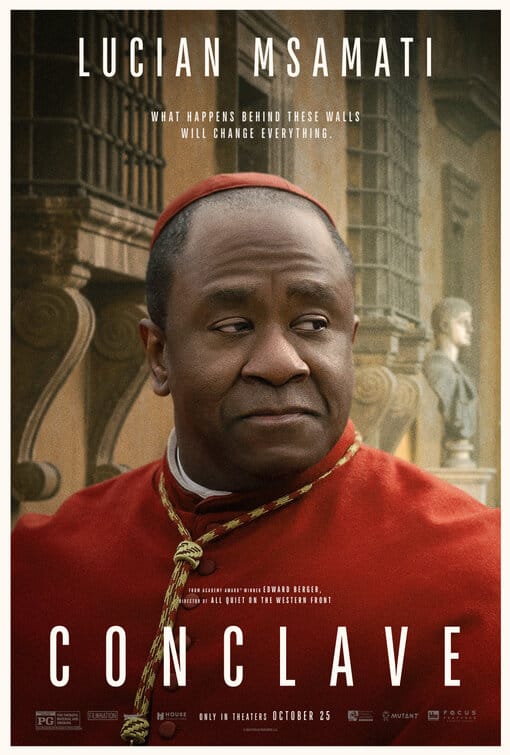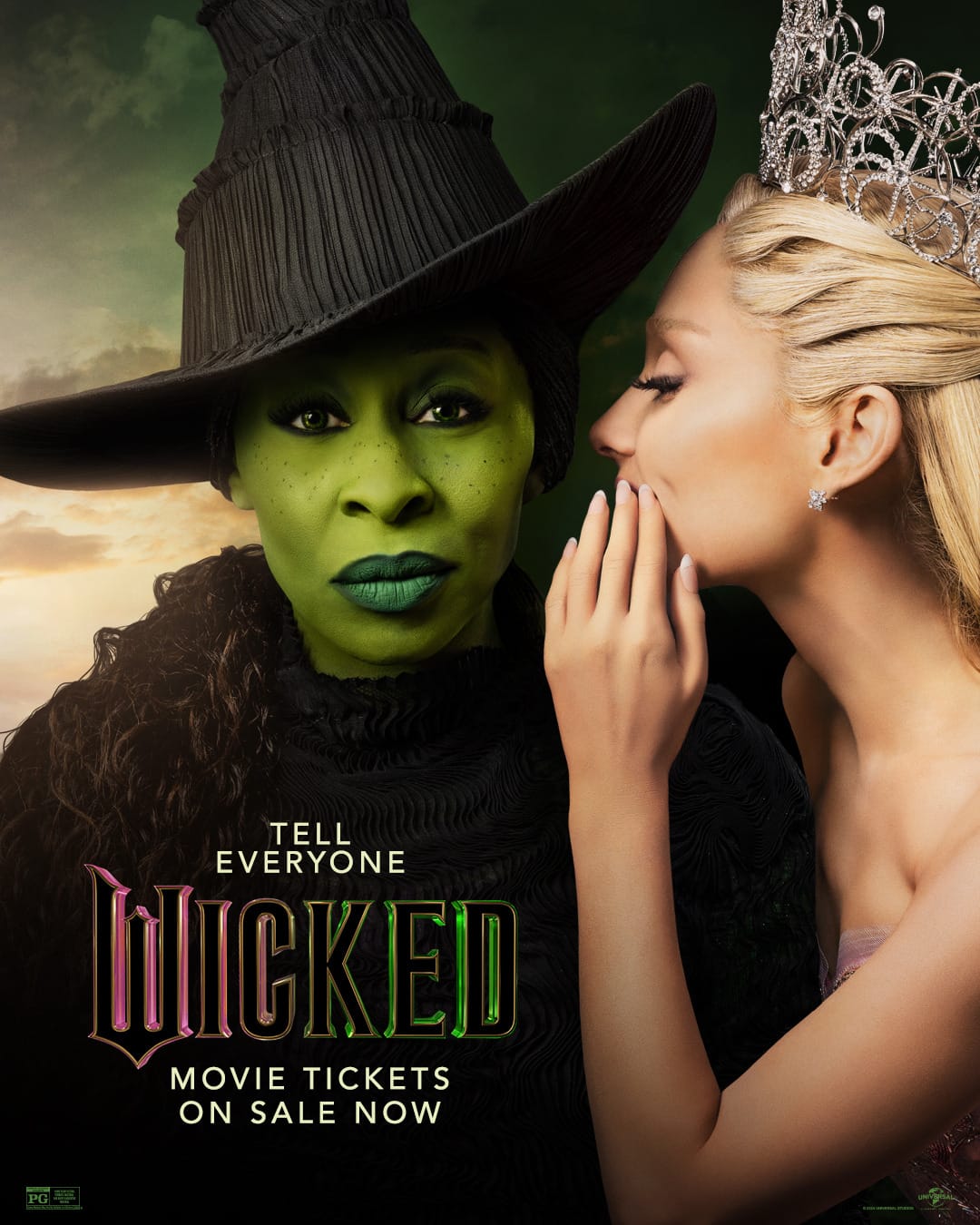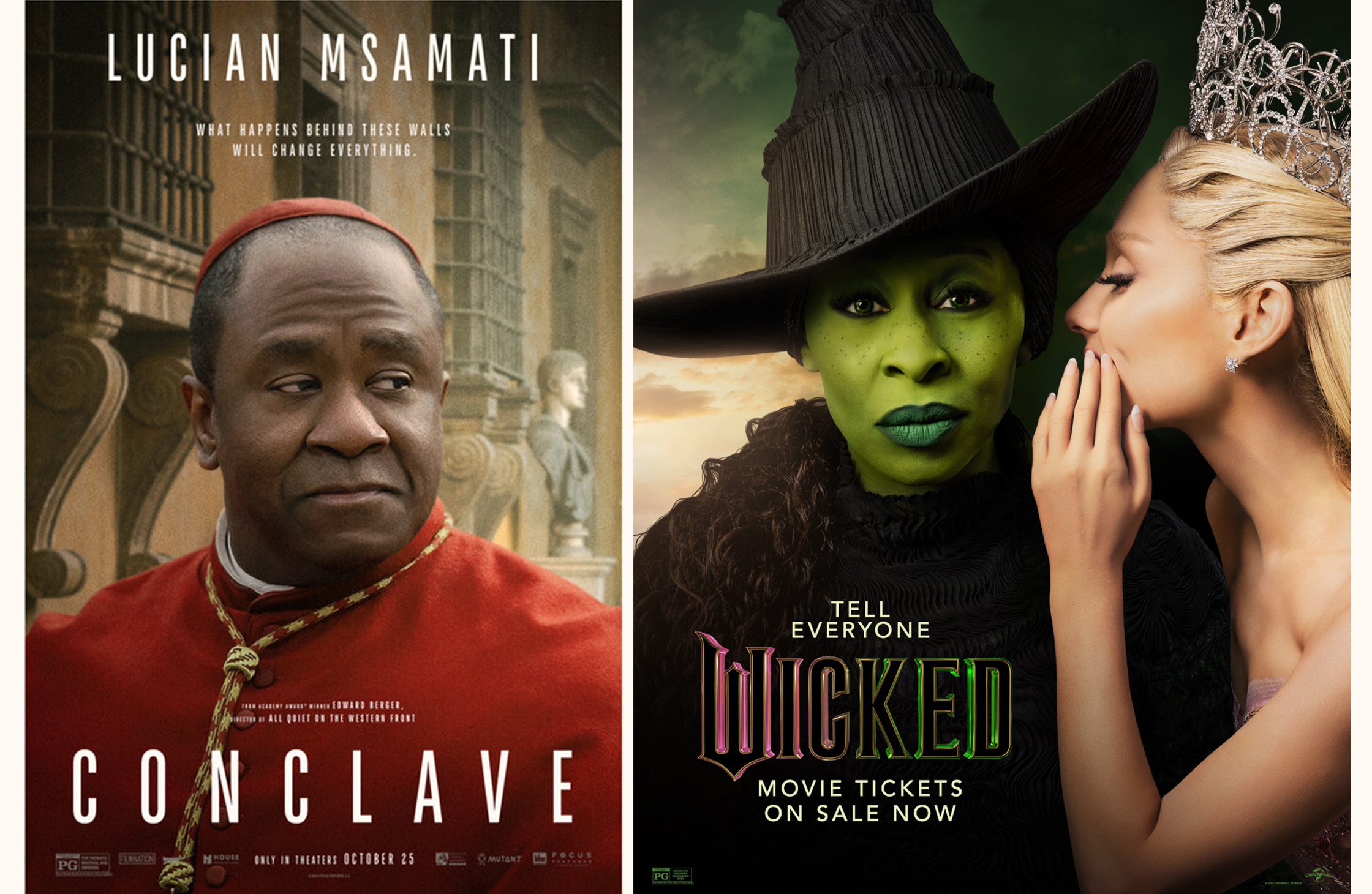
Conclave
When it comes to choosing a setting for a tense political thriller, it's safe to say that the hallowed corridors and chapels of the Vatican are not the first locations that springs to mind. The mysterious and arcane rituals surrounding the papal succession have remained almost completely opaque for nearly two millennia, and it's in the rarefied atmosphere of this sacerdotal pressure cooker that we find ourselves in Conclave, the latest movie from Edward Berger, director of All Quiet on the Western Front. Based on Robert Harris' 2016 novel, the film concerns itself with the machinations of the assembled Sacred College of Cardinals as they navigate the process of electing a successor to the recently deceased pontiff.
Ralph Fiennes stars as the reserved and thoughtful English Cardinal Thomas Lawrence, a man seemingly crushed under the weight of his meticulous competence. Lawrence has been hand-picked by the late pope to oversee the election of his successor, and as the main contenders assemble and begin to jostle for position, the reasons why become all too apparent. Leading the field is United States Cardinal Bellini (Stanley Tucci), a progressive-minded man whose beliefs broadly align with those of the late pope, but who is somewhat encumbered by his ‘limousine liberal’ reputation. Snapping at Bellini's heels is Italian ‘traditionalist’ candidate, Cardinal Tedesco (Sergio Castellitto), a vicious, reactionary, racist bigot whose political views stop just short of arming every priest, nun, and altar boy and marching them into Tehran in another Crusade. Rounding out the field are the seemingly mild-mannered and emollient Canadian Cardinal Tremblay (John Lithgow) and Nigerian Cardinal Adeyemi (Lucian Msamati), whose hopes of becoming the first African pope are seriously hampered by his intractable homophobia.
Just as Lawrence is about to commence the conclave, a hitherto unknown cardinal arrives. Fresh from his ministry as Archbishop of Kabul in Afghanistan, Father Benitez of Mexico was made a cardinal while the late Pope was on his deathbed. However, this is not the only mystery left by the late pontiff. The Pope and Tremblay met privately mere hours before his death, at which meeting the Pope demanded Tremblay's resignation. Investigating these allegations brings Lawrence to the door of Sister Agnes (played inscrutably by Isabella Rossellini), a close confidante of the late Pope who knows where the metaphorical receipts are kept.
On paper, Conclave may sound like a tedious, dusty proposition. It's a densely verbal film, with most of its two-hour runtime consisting of increasingly tense conversations between members of the ever-shrinking field of candidates, but director Edgar Berger plays it like a detective thriller. The entire cast is uniformly superb, with Ralph Fiennes in particular turning in a career-best performance (even outperforming The English Patient) as the conflicted Cardinal Lawrence, a good man burdened by a crisis of faith at a critical moment.
An unexpected visual feast, the film is shot in sumptuous Italian Renaissance hues by cinematographer Stephane Fontaine, an approach that highlights the stark contrast between the traditionalism of the Catholic Church and the very modern crises confronting the college. The politically volatile microcosm of the Vatican serves as an allegory for this dangerous moment in world history: the rise of modern fascism, the unmasking of old hatreds, and the urgency of defending the social progress made by the world over the last century. The shocking, brilliant twist at the end of this tale brings the film to a close on a hopeful note, exactly the sort of hope we need as we hurtle headlong into an uncertain 2025.

Wicked
It's not easy bein' green, as Kermit The Frog once mused in one of Sesame Street's philosophical musical interludes. Indeed, that astute observation could serve as an alternative title for Steven Schwarz's smash-hit stage musical Wicked, which has broken box-office records around the world and is still selling out the Gershwin Theater on Broadway an astonishing 21 years after its premiere. The musical serves as a reinterpretation of Frank L. Baum's classic The Wizard Of Oz and, more specifically, MGM's iconic 1939 film adaptation starring Margaret Hamilton as the ‘original’ Wicked Witch.
Despite MGM's movie displaying its rigid moral compass in somewhat simplistic primary colors, more modern audiences began to discern shades of greenish-gray in the narrative. There is an argument to be made that the so-called ‘Wicked Witch’ got an extremely raw deal in the grand scheme of things. At no point in the tale does anyone explain what the hapless Witch did to earn the epithet ‘wicked’. We're simply told to accept that it is so. As if this ad hominem attack wasn't enough of an insult, along comes some entitled teenager in a gingham frock who promptly kills her sister by dropping a farmhouse on her head and, rather than apologizing profusely, steals her shoes and wanders off wearing them. In one final, terminal twist, said teenager unceremoniously kills the much-maligned witch by lobbing a bucket of water over her. Rude, much?
This, then, is the starting point for Wicked, the origin story of Elphaba Thropp, an intelligent and magically talented child born of an affair between the wife of the Munchkinland governor and a traveling salesman. Elphaba's childhood is troubled due to her unnaturally green skin, but her fortunes change when her magical talent is finally spotted by Madame Morrible of Shiz University when Elphaba is tasked with delivering her paraplegic sister to the University to begin her studies. Elphaba is enrolled, too, and a love-hate relationship begins between her and her unfeasibly blonde roommate Galinda. Eventually, Elphaba's developing magical talent leads to a trip to the Emerald City to meet the Wonderful Wizard of Oz himself, where Elphaba discovers that much of what she believes about the world she inhabits is based on a lie.
Let's get the niggling out of the way first, before the important stuff: the movie is about an hour too long and loses focus somewhat with an excess of sub-High School Musical filler, but if your bladder can take a 160-minute first act (yes, this is just Part One), then this is a sumptuous, lavish cinematic feast with substance behind the glitz. It's beautifully photographed with an outrageous, gaudy color palette in psychedelic greens and pinks, emblematic of the central characters of Glinda and Elphaba.
Performances are note-perfect across the board: Arianna Grande plays Glinda as an entitled, shallow Instagram influencer, lifted straight from the scripts of Mean Girls and Legally Blonde, but the undisputed star is Cynthia Erevio as Elphaba. This is a film that is remarkably unsubtle in making provocative and important political statements, and it's obvious that casting a woman of color as Elphaba was quite deliberate. From the moment Glinda and Elphaba first meet, Glinda's clumsy, unthinking white privilege is on full display, and we cringe along with Elphaba as the talentless Glinda offers to ‘cure’ her of her otherness.
This is just the first of many occasions where the film rages at the othering of minorities, at the suppression and extermination of voices that encourage critical thinking and question propaganda, at totalitarian rule by the propagation of a Big Lie. That the filmmakers could get this script filmed at this particular moment in American history is immensely significant, and Wicked is essential viewing for that reason alone. See it, just in case there comes a moment over the next few years when you no longer can.
Recently arrived in the Tri-Cities, Damian is a former freelancer who has written movie and music reviews for a variety of UK websites.

